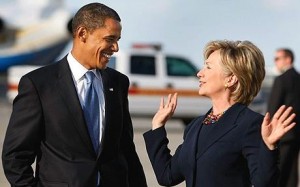After a solid week of US officials and top Democratic Party politicians, including their presidential candidate Hillary Clinton, publicly blaming Russia for the hack of the DNC and the leak of DNC emails to WikiLeaks, officials in the administration are finally starting to ask whether publicly blaming Russia is a good idea.
 Intelligence officials are warning that the costs of publicly blaming Russia could “far outweigh the benefits, if there would be any benefits,” and that US revenge hacks, which may already be ongoing, risk provoking Russian hacks on actual important infrastructure.
Intelligence officials are warning that the costs of publicly blaming Russia could “far outweigh the benefits, if there would be any benefits,” and that US revenge hacks, which may already be ongoing, risk provoking Russian hacks on actual important infrastructure.
The US has been keen to “name and shame” whatever country they choose to blame for any given back, but so far this hasn’t meant much, since officials never offer any real evidence. Indeed, one of the key arguments officials give for not “officially” blaming Russia, despite repeatedly, publicly blaming Russia, is that they’d have to provide what evidence, if any, they actually have to make the charge credible.
Former White House Director for Cybersecurity Policy Chris Finan has strongly criticized the reaction to the hack, warning that it is ultimately not possible to know for sure who was behind any such hack, and that any remotely competent attacker would plant false evidence trying to implicate someone else. He also warned that the accusations risk being seen as primarily political, since the Clinton campaign is position the narrative as Russia hacking the DNC to help Republican nominee Donald Trump.
Clinton has publicly insisted that “we know” Russia did the hack, despite the lack of evidence, and despite repeated protestations from the Clinton campaign on other matters claiming she is virtually computer illiterate. Even President Obama suggested it was “possible” that Russia did the hack for Trump’s benefit.


